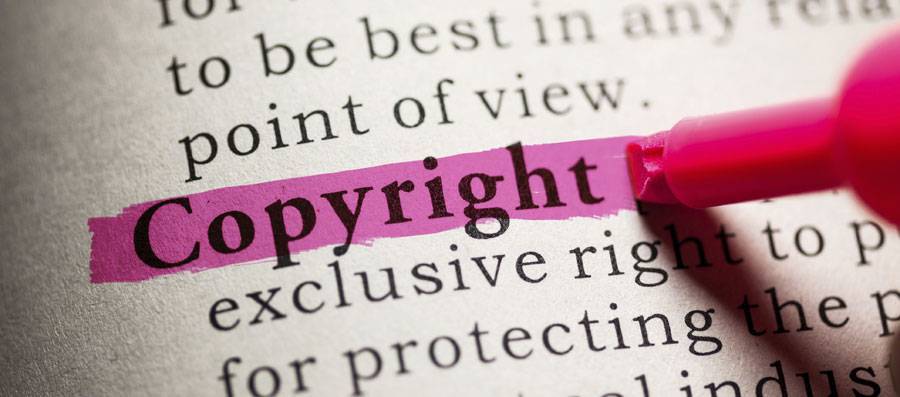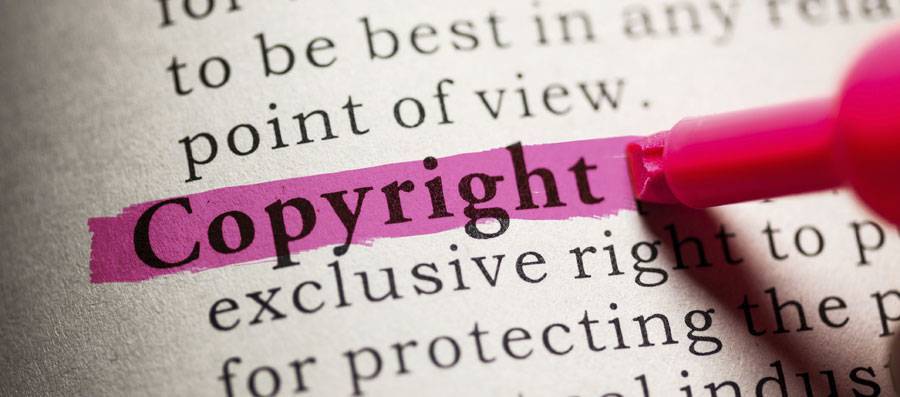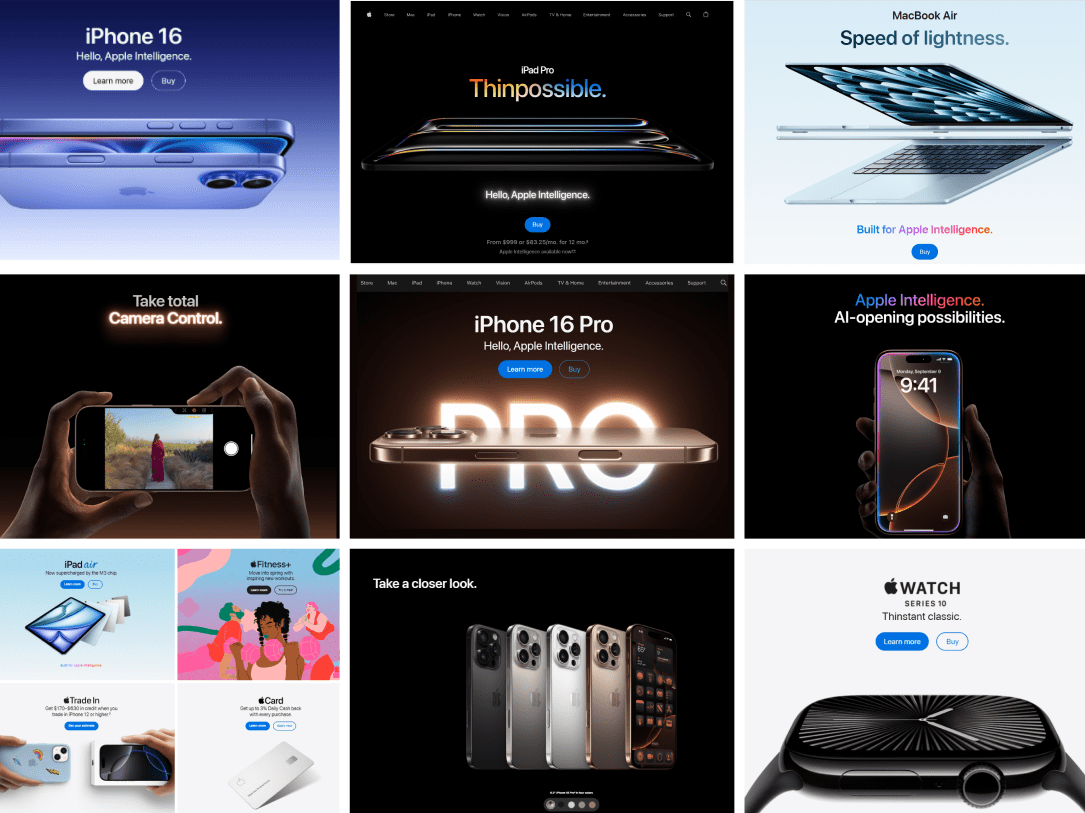

How Not to Get Sued: Six Copyright Myths You Need to Know

Whether it's traffic laws or copyright, many of us behave like pirates
Copyright violations are a lot like traffic violations, if your behavior on the internet is anything like the way you drive: You probably break the law every day and don't think twice about it.
There might be a few reasons this happens:
- Don't know the laws
- Don't care enough to learn the laws or change your behavior
- Don't think you'll get caught
We're not here to judge. Instead, it is our goal for this blog post to educate you on some of the basics of copyright, before you infringe on the wrong person's copyright.
Let's assume you fit into the first category:
What is Copyright?

The meaning of "copyright" applies to all creative content
Copyright is hard to define, so we're going to opt for the Oxford Dictionary's definition, which describes it as "an exclusive and assignable legal right, given to the originator for a fixed number of years, to print, publish, perform, film, or record literary, artistic, or musical material."
Copyrights being "assignable" means the originator can authorize others to do the same. In the context of the web, copyright material includes things like YouTube videos, photos or images posted on Facebook or Instagram, and tweets posted to Twitter.
Common Copyright Myths
As with many complex issues, like tax law or health insurance, your concerns regarding copyright may not be due to a lack of information about copyright, but rather that you have too much misinformation. Let's dispel some of the more common copyright myths:
Myth #1: Content found on social media is in the public domain.
You may think the content in your Facebook News Feed is exempt from copyright violations, but you'd be wrong. Sharing content you find online is a violation of copyright law, unless you've been expressly given permission by the original content creator. If you found a funny video online and uploaded it to Facebook or some other social media network, that is very likely an infringement of someone else's copyright.
Weird, right? The idea of content ownership and a legal requirement to seek permission before sharing it seems counter-intuitive to our informal Internet culture of sharing viral content–but that just shows how misunderstood copyright law is on the web.
The Reality: When you feel tempted to share a funny video, proper Internet etiquette would dictate that you do a little sleuthing and try to verify the original source of the content. Rather than upload and repost their content as if it were your own, you should instead share a link to the original content.
Myth #2: If it doesn't have a copyright notice, it's not copyrighted.
This is just patently false. Anyone's work is protected under copyright as soon as it's created, and copyright law protects that work for your lifetime, plus 70 years.
This applies to any literary, artistic, or musical material. In fact, the Digital Millennium Copyright Act (DMCA) passed in 1998 actually strengthened the penalties for copyright infringement on the Internet.
The Reality: Absence of a copyright notice has no effect on the protection of someone's content under copyright law.
Myth #3: Crediting the content creator protects you from liability.
This might be the biggest pet peeve of content creators. The regularity with which credit (in the form of a byline or link) is offered as a replacement for compensation or permission is astounding, and it shows how many people fundamentally misunderstand copyright law.
Similarly, copyrighted content is often posted with the disclaimer "I do not own this content. All rights belong to the original creators respectively. No copyright intended." These disclaimers might be even worse than crediting, as it acknowledges that copyright exists with someone else, yet ignores the legal responsibilities that would entail. This phrasing is likely used because the "legalese" makes the statement sound more legitimate.

YouTube videos regularly include these kinds of "disclaimers"
The Reality: If you do not own the content, you must either ask for permission to share it, or pay the copyright holder to license it.
Myth #4: "I gave them free advertising."
Despite what you may think, copyright violations are not a "victimless" crime. Yes, it's possible you helped grow a content creator's page by exposing your audience to them. It's also possible that sharing their content had monetary repercussions for them. In cases where those victims are aware of their rights, they will seek damages.
To illustrate these damages, let's look at a specific example:
Suppose you run a very successful Facebook page. Over the course of many years, you've developed a large following, due to your reputation of posting the funniest videos from across the Internet. While surfing one day, you identify what you think is the next big viral video, posted by an undiscovered YouTube talent. You then download the video, add your logo as an intro, and post it on your Facebook page.
The above scenario is what we call "freebooting." Even though you have not profited from the video in any way, you are stealing impressions and ad revenue from the original creator, who will never be able to get those views and ad revenue back.
To give you an idea of viral content's monetary value, YouTube pays out approximately $5-$8 per 1,000 views on a video monetized by rollout ads; so a video that goes viral and racks up 1,000,000 views is worth $5,000-$8,000 in ad revenue. Anyone who earns that revenue without consent from the original content creator is taking that money right out of their wallet.
The Reality: Regardless of whether it's free or not, "promoting" someone else's content does not excuse or forgive your initial copyright infringement.
Myth #5: "I've removed your copyrighted material" protects you from consequences of copyright infringement.
As the example above illustrated, there are often monetary damages that the original content creator cannot recoup when you post their copyrighted content. As a consequence, it's quite common for content creators to use a Cease and Desist as the first step towards having their copyrighted content removed–but don't be surprised if an invoice follows.
The Reality: Simply removing their content cannot absolve you of liability for infringing on someone's copyright.
Myth #6: "This content is protected by fair use."
Fair use is a large enough subject to dedicate an entire blog post to it, but I'll give you the highlights of why fair use is not a silver bullet excuse to get out of a copyright violation:
Fair Use is a legal doctrine that permits limited use of copyrighted material without acquiring permission from the rights holders.
There have been many U.S. court rulings that define what constitutes Fair Use, but its protections are largely reserved for reviews, parodies, and educational content.
As an example, it is often Fair Use to use small sections of a copyrighted work while creating a derivative work, such as a movie trailer review that includes clips of original content that add to its commentary; but in that example, showing the entire trailer in the review would no longer be protected by Fair Use.
The Reality: Fair Use copyright protections only apply to certain forms of content, and unique exceptions are evaluated by U.S. courts on a case-by-case basis.
How do I avoid infringing on someone's copyright?
Complicated stuff, huh? It's no wonder that there are lawyers who spend an entire career only working within copyright law. Assuming you aren't one of these lawyers, what can you do to avoid being on the wrong end of a copyright claim?
1. Get explicit permission
If there is any uncertainty about whether you can share someone else's content, ask the creator for permission.
Don't know who the creator is? Use a search engine. There are even specialized search engines like Tin Eye that let you upload an image to identify where else that image is used on the Internet.
2. Use Creative Commons or stock content
Any time you require photography or video, don't rip images you find on social media or Google. Stock photography websites like Getty Images or Think Stock are always a safe option.
If you are on a budget and can't afford high quality photography, look into finding images with a Creative Common license. Here is a handy search tool you can use to find CC images: https://search.creativecommons.org/
3. Create your own content
The safest option is to not rely on the creative work of others. Being effective with marketing in today's world requires unique content. It's better that you are the one who creates that content. As a bonus, once you become a unique content creator, you gain the ability to protect your own copyright.
The Bottom Line: Copyright is never going away. Whether you are a content creator or content licensee, it is important that you understand these copyright basics to avoid suffering the legal consequences of copyright infringement.




